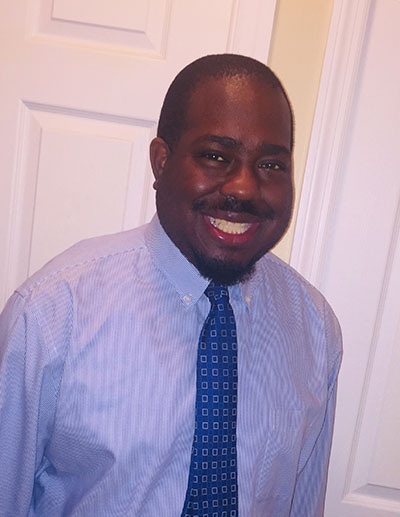Real Stories from People Living with Sickle Cell Disease: Harry Williams Jr.
Harry’s Story

Harry Williams Jr. is 44 years old, married, and a public health analyst and former adjunct professor. He also is a sickle cell warrior and advocate who doesn’t allow his condition to limit him from achieving his goals. He earned a bachelor of science in health service administration from Florida Atlantic University and a master of public health from Florida International University. In addition, Harry was a 2010-2012 CDC Public Health Associate Program fellow.
Harry was diagnosed with sickle cell disease (SCD) at 18 months of age, when his daycare provider shared concerns about his delayed growth. Concerned, his parents took him to his pediatrician, who completed lab testing and confirmed that Harry had SCD. While his parents initially knew very little about the condition, they took it upon themselves to read and research about SCD, attend conferences, and made sure that their son had the best medical care to manage his chronic condition. While the information his parents obtained proved beneficial, it was the referral by a family friend to his current hematologist, Dr. Noor Merchant, that proved life changing. Harry says, “His expertise, research, and experience with managing care for patients with sickle cell is one of the many reasons I am still alive today.”
Sickle Cell Disease Complications
Growing up with SCD, Harry experienced numerous pain episodes, also known as crises, during his middle and high school years. “I had excruciating pain in my chest, back, and extremities.” The pain episodes also affected his sleep and would later impact his ability to participate in extracurricular activities such as karate, basketball, football, and the marching band. “The physical exertion from these activities would trigger my asthma, which would result in a pain crisis and hospitalization.” Socially, it was difficult adjusting because other kids would tease him for being in the hospital and “sickly,” which made Harry feel ashamed of his condition. “I realized I wasn’t able to do the same things and activities kids my age were doing, I also had to take extra precautions and learn to preplan trips and activities to account for weather conditions and travel locations, and research ahead to see what hospitals were located in the area just in case I ended up having a pain crisis—that’s a lot to consider as a teenager.”
With so many hospitalizations, he has unfortunately experienced biases in treatment. “I’ve had some providers who weren’t familiar with sickle cell and thought I was faking or exaggerating the pain I felt during a crisis episode, in order to get pain medications. Those experiences made it difficult to want to seek treatment, and I would suffer at home until I couldn’t anymore and had to go to the hospital. I’m thankful that I had a strong mother who prayed and advocated for me when I couldn’t as a teenager.”
As an adult, Harry has learned how to manage his SCD. He gets adequate rest, stays hydrated, and limits stressful events and travel to locations with high altitude or extreme cold temperatures. Harry also takes time to watch movies and documentaries, enjoys community service and sickle cell advocacy, and enjoys spending time with his wife. He also credits his faith in God for keeping him safe through various trials and challenges related to SCD. “God has been so good to me, and I make it a point to share with others how blessed I am and the wonderful things He has allowed me to accomplish in spite of.”
Education and Advocacy
As a professor at two colleges, Harry had many students who were future healthcare management administrators and care providers. He used opportunities to educate them on the topic of SCD and the importance of providing patient-centered care that is unbiased and respectful. He is a former board member of the Palm Beach County Sickle Cell Foundation. He currently attends virtual support group meetings offered through the Sickle Cell Association of Texas Marc Thomas Foundation. This enables him to interact with other warriors and stay current on various SCD research, trials, and treatment options.
Tips for Others
When asked what tips he has for others with SCD, Harry offered these recommendations:
- Never put limits on children with SCD. Let them live their dream and support them.
- Educate yourself, so you can speak up for yourself. Be your own best advocate. Learn about your condition and utilize all the services available.
- Don’t feel sorry or ashamed about your condition. God made you for a specific purpose and reason. Your story can encourage someone else to live another day.
- Surround yourself with people who love you. I’ve been blessed with great parents, family, and friends, and now a wonderful and supportive wife and in-laws.
- Maintain regular appointments with providers—primary care providers, hematologists, optometrists, and others. Your health is a priority!
Harry’s greatest hope for the future is that a universal cure for SCD is found. He also hopes continued education and awareness within the medical community will remove the stigma associated with sickle cell patients and crisis management.
CDC thanks Harry for sharing his story.
